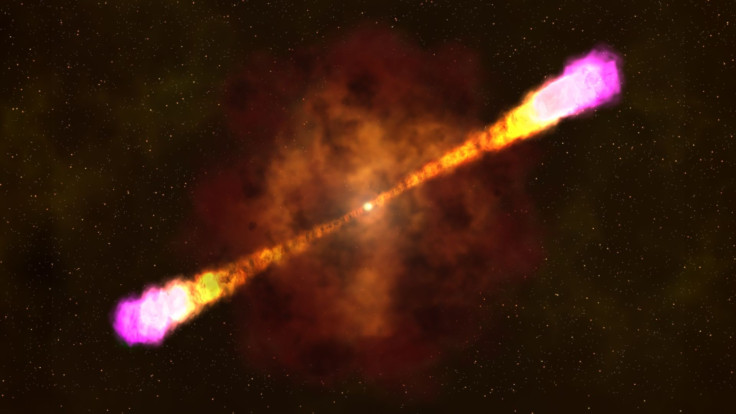How Supernova’s Gamma Ray Burst Would Destroy Earth’s Ozone Layer

KEY POINTS
- Gamma-ray bursts are produced by supernova events
- Getting hit by a GRB would destroy Earth's ozone layer
- A powerful and nearby GRB can render Earth uninhabitable
An engineer explained what would most likely happen to Earth if it gets hit by a gamma-ray burst (GRB) produced by an exploding star. According to the engineer, half of Earth’s ozone layer would get destroyed during such an event.
GRBs are known to be extremely energetic explosions. According to scientific reports, these explosions are caused by supernova events. Due to the immense power carried by GRBs, they are often referred to as one of the greatest cosmic threats to Earth.
But, since Earth is currently not near any star that’s in danger of going supernova soon, the planet will most likely not get completely destroyed if it gets hit by a distant GRB. According to retired engineer Duncan Caincross from New Zealand, a GRB from a faraway supernova could destroy half of the Earth’s ozone layer.
Although this would leave large parts of the world exposed to the radiation from space, it won’t cause an extinction-level event. Caincross noted that eventually, the ozone layer would rebuild itself and return to normal.
“Some people think that a GRB could destroy the Ozone layer - and they may be correct - but that will only affect one hemisphere - and by the time that the depleted zone has spread the chemical reaction will have run its course and the ozone layer will be rebuilding,” Cairncross explained on Quora.
“Removing the ozone layer would not be an extinction-level event - some vulnerable species would go - but most would survive to repopulate once the ozone layer rebuilt itself,” he continued.
However, Cairncross noted that if Earth gets hit by a much stronger GRB from a nearby star or supernova event, the outcome would be very different. As noted by the retired engineer, the blast would obliterate the entire ozone layer.
In addition, the extreme heat from the energy of the blast would be enough to cause Earth’s oceans to boil. Depending on how powerful the GRB is, mass extinctions across various species could occur in just a matter of minutes. Eventually, the effects of the GRB would render the planet completely uninhabitable.
© Copyright IBTimes 2024. All rights reserved.





















